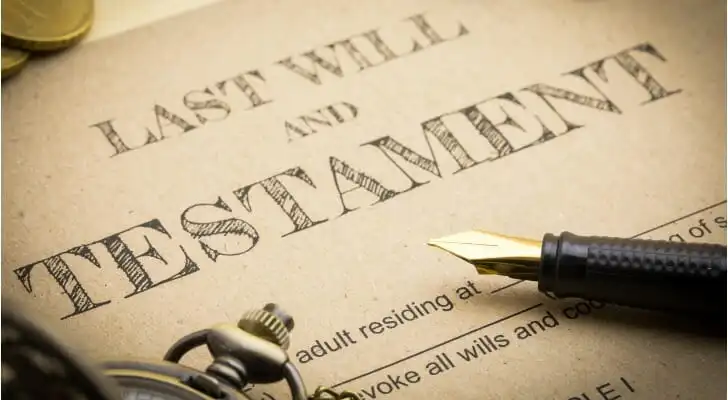Creating a will is an important step in estate planning. A last will and testament is an important legal document that allows you to specify how you’d like your assets to be distributed after you pass away. You can also choose an executor to oversee your estate and ensure that the terms of your will are carried out. It’s possible that you may choose an executor for your will, only to decide later that someone else is better suited for the job. Or your heirs see to remove a will executor after you pass away. As you shape your estate plan, it’s important to understand when the executor of a will can be removed and why it may be necessary. One of the best ways to shape your estate plan is by working with a financial planner.
What Does the Executor of a Will Do?
A will executor has a number of duties but their main role is to ensure that the terms of a will are followed. The specific duties of a will’s executor include:
- Notifying interested parties (i.e. those named in the will) of the willmaker’s death
- Introducing the will to the probate court
- Giving notice to the willmaker’s creditors that they’ve passed away
- Collecting and inventorying the assets of the deceased person’s estate
- Liquidating assets if necessary to pay creditor claims
- Filing any necessary tax returns
- Closing down bank accounts
- Reading the terms of the will to any named beneficiaries
- Distributing any remaining assets after all estate debts are paid to those individuals or organizations named in the will
When creating a will, you have the power to choose who should serve as your executor. This can be a relative, family friend or even your estate planning attorney. The executor of your will can also be one of the beneficiaries of your will, though they cannot be a witness to the will if they also have a financial interest in it.
Reasons to Remove Will Executor
There are a number of scenarios where removing the executor of a will might make sense. For instance, you might name someone to serve as executor and they might agree, only to change their minds later. In that case, you’d need to find someone else who’s willing to be the executor of your will. The same is true if your chosen executor passes away before you.
Conflicts of interest can also make it necessary to remove the executor of a will in place of someone else. Again, this doesn’t necessarily prohibit the executor from also being a beneficiary of your will. But if there’s a conflict of interest that exists that would prevent them from carrying out their fiduciary duty, then they may need to be removed.
It’s also common to seek the removal of a will’s executor when that individual is suspected of misconduct. For instance, misconduct can include:
- Failing to carry out the will’s terms
- Failing to cooperate with the will’s beneficiaries
- Failing to enforce a court order
- Mismanaging the assets of the estate
- Self-dealing, i.e. using the assets of the estate to benefit themselves in some way
- Misappropriating funds or embezzlement
- Breaching fiduciary duty standards
- Showing hostility to the estate’s heirs
- Being convicted of a felony
- Charging excessive or unwarranted fees
An executor to a will may also need to be removed if it’s determined that they aren’t physically or mentally capable of fulfilling their duties. If the executor of a will suffers a stroke, for example, that leaves them incapacitated a new executor would need to be named to replace them.
Who Can Remove Will Executor?
As the creator of a will, you have discretion over who can serve as executor. So, if you decide during your lifetime that someone else might be a better fit for the role or your current executor asks to be relieved of their duty, you could change your executor. Doing so would require adding a codicil to your will or drafting an entirely new will document. Your heirs can also seek the removal of a will’s executor after you pass away. If you’ve named a successor executor in your will, that person may then assume the role of executor.
How to Remove a Will Executor
How you go about removing the executor of a will depends on your interest in the will. If you’re the person who made the will, then again, you could simply add a codicil to the will or draft a new will document. Adding a codicil may be easier but if you plan to make additional significant changes to the terms of the will it may be best to draft an entirely new one. You should, however, take steps to ensure that the original copies of your will are properly destroyed so there are no challenges made to your new will’s legality later on.
In the case of a will beneficiary who seeks to remove the will executor, the process must go through the appropriate channels. Typically, this means petitioning the probate court to remove a will executor and replace them with someone else. You may need to hire an attorney for this and unless the judge orders the estate to pay, you’d be responsible for covering their fees.
Keep in mind that if you’re seeking to remove a will executor as a beneficiary, you’ll need to be able to justify your request. That can mean providing proof of misconduct, conflicts of interest or incompetency that would necessitate the executor’s removal. Simply disliking the executor isn’t enough by itself to ask a court to exchange them for someone else.
Bottom Line
There are various reasons why it might make sense to remove a will executor, though it isn’t a decision to take lightly. If you’re choosing a new executor for your will, consider their commitment to carrying out the will’s terms and their ability to do so. Naming one or more successor executors may also be a good idea if you think the primary executor may change their minds or it’s possible that they might pass away before they can carry out their duties. Talking to an estate planning attorney can help you better understand the implications of and requirements for executor removal.
Tips for Estate Planning
- Having a will is important if you want to avoid intestacy when you pass away. Dying intestate means your assets are distributed according to your state’s inheritance laws. But you may also want to add other elements to your estate plan, such as a trust, advance health care directive and power of attorney.
- Consider talking to a financial advisor about when it may be necessary to change the executor of a will or how to draft your first will. SmartAsset’s free tool matches you with up to three vetted financial advisors who serve your area, and you can interview your advisor matches at no cost to decide which one is right for you. If you’re ready to find an advisor who can help you achieve your financial goals, get started now.
Photo credit: ©iStock.com/m44, ©iStock.com/Chris Ryan, ©iStock.com/wilpunt


